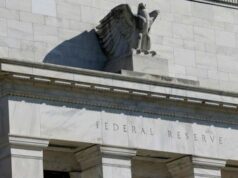Deep recession seen to hurt banks’ asset quality
S&P GLOBAL RATINGS on Tuesday said the risk of credit losses soaring for Philippine banks is higher than expected amid the economic slowdown, as it downgraded its rating outlook for two local banks to negative.
“The economic risk trend for banks operating in the Philippines has turned negative [from stable], in our view,” S&P said in a note sent to reporters.
The debt watcher said weak economic activity and bleak employment conditions will hit the asset quality, earnings and capitalization of Philippine banks in the next two years.
“We see at least a one-in-three chance that economic risks facing the Philippine banking industry could increase over the next six to 24 months. We could lower our economic risk assessment for the banking sector if the recession is longer and deeper than our forecast, potentially translating to the banking sector’s credit costs staying above 2.5% over the next 12-24 months,” it said.
S&P downgraded the outlook for Bank of the Philippine Islands (BPI) and Security Bank Corp. to negative from stable, suggesting a possible downgrade could occur within six months to two years. The lender’s ratings from S&P are currently at “BBB+/A2” and “BBB-/A3,” respectively.
S&P said BPI’s affirmed rating reflects the lender’s position of being the country’s third-biggest bank, its franchise network and ample capitalization.
“BPI will face headwinds, most notably in the form of elevated credit costs owing to a combination of new NPLs (nonperforming loans) and management’s assessment that the credit cycle in the country is deteriorating,” it said.
S&P said its rating for Security Bank is backed by its midsize market position, capital buffers and good funding and liquidity in the six months to two years.
“The rating also incorporates our view that the bank’s credit costs will remain higher than that of peers during the period. Security Bank’s high growth in unsecured consumer loans before 2020 makes it vulnerable to rising credit stress from COVID-19 disruptions,” S&P said.
In a separate note, Fitch Ratings affirmed the ratings and kept a stable outlook for BDO Unibank, Inc. (BBB-), BPI (BBB-), Metropolitan Bank & Trust Co. (BBB-)
and Philippine National Bank (BB). However, it downgraded the outlook for China Banking Corp. (BB+) to negative.
“Some signs of asset quality weakness were already visible prior to the pandemic and some banks have relatively low capital levels, but the sector as a whole was in a reasonably good shape,” Willie Tanoto, director, Banks – APAC, Fitch Ratings, said in an e-mail.
However, the rapid growth in lending particularly bolstered by the consumer segment is a source of higher risk compared with the core large corporate portfolio, he said.
“Some of these new lending had not had time to establish a sufficiently long repayment history for banks to ascertain customers’ credit profile and, given the sharp economic downturn and weak job market, may now be at higher risk of default,” Mr. Tanoto said.
“Business borrowers in certain segments and sectors also face acute challenges given how deep the current economic recession is,” he added.
In its report, Fitch flagged the impact of the monetary policy easing by the central bank to lenders’ revenues and further deterioration of asset quality once the debt moratorium lapses.
Industry-wide gross bad loans climbed by 35% to P305 billion in August due to the pandemic. This brought the nonperforming loan ratio to 2.84% as of end-August, the highest since 2.87% in February 2014. — L.W.T.Noble



